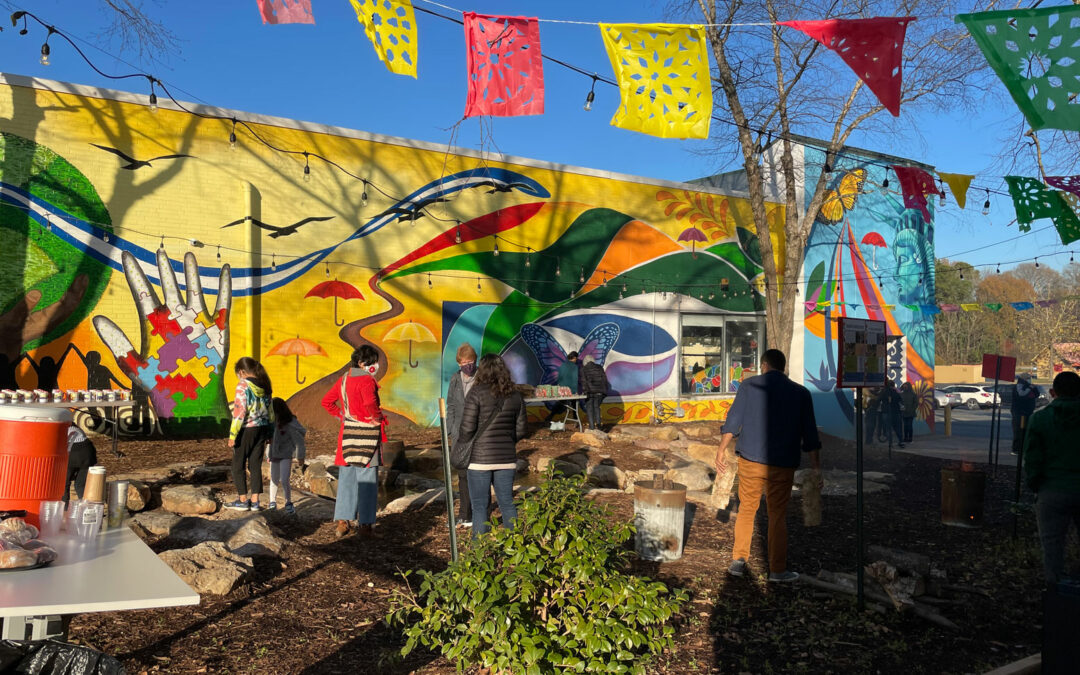New to the United States? Here Are Some Tips for Settling Into Your New Community
It shouldn’t come as a surprise that moving to a new country can be a stressful and challenging endeavor. You’re probably wondering how to build a social life and keep in contact with your friends and family back home. The great thing is that no matter where you move to in the United States, there are some great ways to stay social. Today, El Futuro shares a few.
Volunteering
Volunteering is a great way to meet new people while you work towards a common cause. Even if you don’t speak the same language, they’ll appreciate you putting in the work to help. Most communities have various volunteer opportunities available, such as cleaning up public areas and roads or working in a soup kitchen to feed low-income residents.
On a larger scale, other organizations that help feed the people in your city might also have volunteer opportunities. Food insecurity is one of the biggest problems facing America today, and according to Feeding America, tens of millions of Americans cannot afford enough food or maintain access to healthy food options.
This presents opportunities to help those around you while volunteering at food banks, community gardens, or co-ops or helping deliver food to people who have difficulty leaving their homes. In your search for volunteer opportunities, take advantage of local resources and websites to help you find volunteer opportunities for the causes you care about most.
Find an Immigrant Social Club
Immigrant social clubs are dedicated to helping immigrants forge relationships with people from the same culture. They usually provide assistance for newcomers as well, so they’re worth checking out. Members of these clubs usually have valuable advice to hand out, since they’ve been in the community for a while and know what it’s like to be a new immigrant in your area.
Starting a Business
You’ll probably want to secure your finances as much as possible, especially if you have a family back home you want to support. Starting a business can help you build your bank account and give you the flexibility of being your own boss.
Your best option would be to set up a limited liability company (LLC). LLCs are easy to set up and protect you from any debts your business incurs, so you won’t be held personally responsible if anything goes wrong. LLCs have favorable tax advantages, allowing business owners to decide how they want to be taxed. Additionally, taxes for LLCs tend to be less severe than for other types of companies, like corporations. That means you can save more money as a profit and send more back home.
Next, don’t forget to advertise! Start by building your own YouTube template using free templates to save on your marketing budget while reaching the biggest possible audience. Spread the word via other social media platforms, as well.
Do All Of This for Your Mental Health
Exploring a new city and engaging in activities to become familiar with your surroundings not only aids in finding your way around but also contributes significantly to mental and emotional well-being. You can cultivate a sense of belonging and build connections with others by actively participating in local events, trying new foods, and visiting new places. This involvement helps reduce feelings of isolation, loneliness, and anxiety often accompanying relocation. Furthermore, being open to new experiences stimulates cognitive flexibility, adaptability, and resilience, essential components of mental health. Settling into a new city in an active and mindful manner can foster a sense of stability, increase social support, and promote overall mental and emotional well-being.
Jump Into New Opportunities
Don’t be afraid to try something new when you’re new to the country. Getting involved in anything, whether a club or starting your own business venture, will ensure you find friends and a place for yourself as you settle into your new home.
Article written by Amanda Henderson


 Alvely Alcántara, LCSW
Alvely Alcántara, LCSW Rossy C. Garcia, MEd
Rossy C. Garcia, MEd  Katy Sims, MD
Katy Sims, MD  Everardo Aviles, LCSW, LCAS (Eve)
Everardo Aviles, LCSW, LCAS (Eve) As a medical anthropologist and social work researcher, Dr. Gulbas’ research embodies interdisciplinarity through the integration of applied theories of health and human development with qualitative and ethnographic methodologies. Her work seeks to understand how people—children, families, and providers—navigate complex sociocultural landscapes in the pursuit of mental health. Most of her work, to date, focuses attention on developing more robust interpretations of suicide risk. With funding from the National Institutes of Mental Health, this body of research has contributed to advancements in theoretical and empirical knowledge of the broader contexts within which youth suicide risk is situated.
As a medical anthropologist and social work researcher, Dr. Gulbas’ research embodies interdisciplinarity through the integration of applied theories of health and human development with qualitative and ethnographic methodologies. Her work seeks to understand how people—children, families, and providers—navigate complex sociocultural landscapes in the pursuit of mental health. Most of her work, to date, focuses attention on developing more robust interpretations of suicide risk. With funding from the National Institutes of Mental Health, this body of research has contributed to advancements in theoretical and empirical knowledge of the broader contexts within which youth suicide risk is situated.  R. Gabriela Barajas-Gonzalez is a developmental psychologist and an assistant professor of Population Health at NYU Grossman School of Medicine. Dr. Barajas-Gonzalez is the principal investigator of a study that examines the impact of immigration-related threat and stress on school communities. She earned a PhD in developmental psychology from Columbia University and hold a BA in human biology from Stanford University. Dr. Barajas-Gonzalez is the daughter of Mexican immigrants and a first gen college student.
R. Gabriela Barajas-Gonzalez is a developmental psychologist and an assistant professor of Population Health at NYU Grossman School of Medicine. Dr. Barajas-Gonzalez is the principal investigator of a study that examines the impact of immigration-related threat and stress on school communities. She earned a PhD in developmental psychology from Columbia University and hold a BA in human biology from Stanford University. Dr. Barajas-Gonzalez is the daughter of Mexican immigrants and a first gen college student. Dr. Parra-Cardona is an Associate Professor in the Steve Hicks School of Social Work (SHSSW) at the University of Texas at Austin. At the SHSSW, he serves as Coordinator for Mexico and Latin American initiatives. He also serves as Area Director for Research at the UT Austin Latino Research Institute. Dr. Parra-Cardona’s program of research is focused on the cultural adaptation of evidence-based parenting interventions for low-income Latinx populations in the US and Latin America.
Dr. Parra-Cardona is an Associate Professor in the Steve Hicks School of Social Work (SHSSW) at the University of Texas at Austin. At the SHSSW, he serves as Coordinator for Mexico and Latin American initiatives. He also serves as Area Director for Research at the UT Austin Latino Research Institute. Dr. Parra-Cardona’s program of research is focused on the cultural adaptation of evidence-based parenting interventions for low-income Latinx populations in the US and Latin America. Bianka Reese, PhD, MSPH is a research scientist and program evaluator specializing in adolescent and young adult sexual and reproductive health. Her previous research in the experiences of Latinx LGBTQ+ youth stems from her work as the Research and Evaluation Manager at SHIFT NC (Sexual Initiatives For Teens), where she led largescale evaluations of multilevel, community-based sexual health promotion initiatives and research projects aimed at elevating the voices of diverse youth in North Carolina. Dr. Reese is currently the Senior Research Strategist at Creative Research Solutions, LLC, an award-winning national evaluation, research, and assessment firm.
Bianka Reese, PhD, MSPH is a research scientist and program evaluator specializing in adolescent and young adult sexual and reproductive health. Her previous research in the experiences of Latinx LGBTQ+ youth stems from her work as the Research and Evaluation Manager at SHIFT NC (Sexual Initiatives For Teens), where she led largescale evaluations of multilevel, community-based sexual health promotion initiatives and research projects aimed at elevating the voices of diverse youth in North Carolina. Dr. Reese is currently the Senior Research Strategist at Creative Research Solutions, LLC, an award-winning national evaluation, research, and assessment firm. Tania Connaughton-Espino, MPH is an independent researcher focused on adolescent and young adult sexual and reproductive health. Her interest in the experiences of Latinx LGBTQ+ youth stems from her previous work with SHIFT NC (Sexual Initiatives For Teens), where she led the training and evaluation department, conducted capacity-building workshops for youth serving professionals including on the topic of how to be more affirming of LGBTQ youth, and from her extensive experience working with the Latinx population in NC.
Tania Connaughton-Espino, MPH is an independent researcher focused on adolescent and young adult sexual and reproductive health. Her interest in the experiences of Latinx LGBTQ+ youth stems from her previous work with SHIFT NC (Sexual Initiatives For Teens), where she led the training and evaluation department, conducted capacity-building workshops for youth serving professionals including on the topic of how to be more affirming of LGBTQ youth, and from her extensive experience working with the Latinx population in NC. Maru Gonzalez, EdD is an Assistant Professor and Youth Development Specialist in the Department of Agricultural and Human Sciences at North Carolina State University. Her areas of inquiry include youth development with a focus on activism, social justice, and the experiences of LGBTQ+ young people across familial, school, and community contexts.
Maru Gonzalez, EdD is an Assistant Professor and Youth Development Specialist in the Department of Agricultural and Human Sciences at North Carolina State University. Her areas of inquiry include youth development with a focus on activism, social justice, and the experiences of LGBTQ+ young people across familial, school, and community contexts.  Nayeli Y. Chavez-Dueñas, PhD
Nayeli Y. Chavez-Dueñas, PhD Hector Y. Adames, PsyD
Hector Y. Adames, PsyD